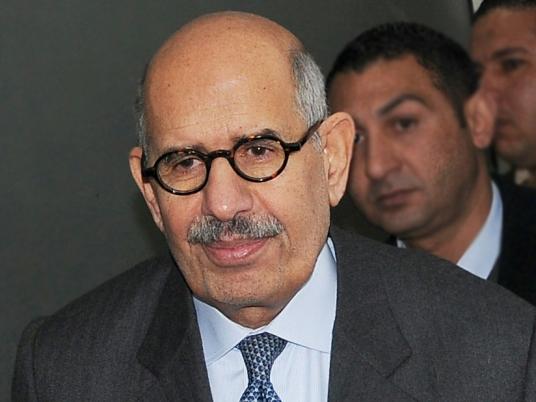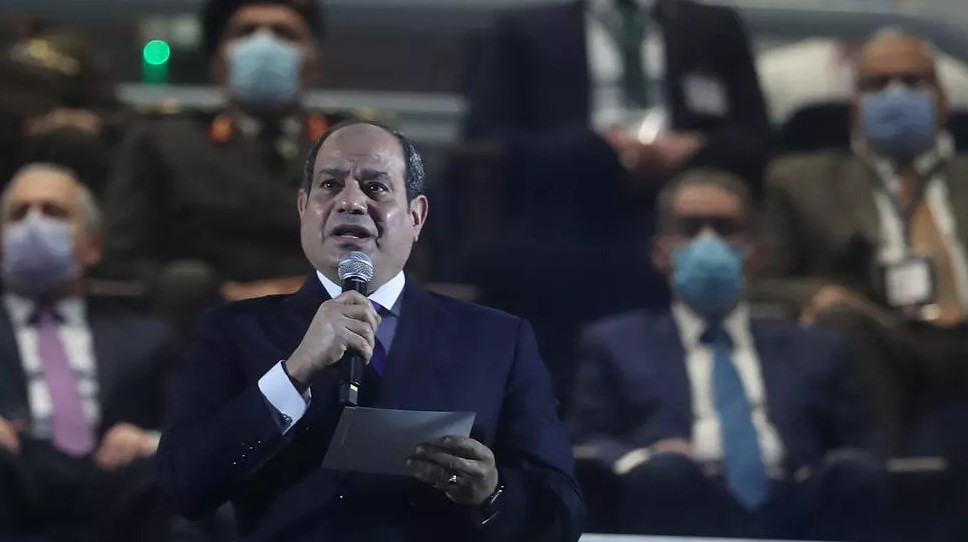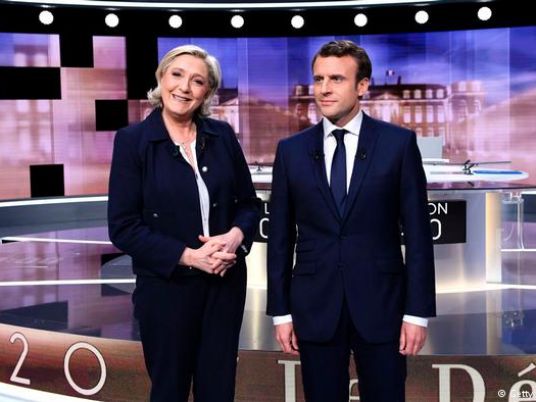The post-Mubarak transitional period has been marred by “randomness” and a lack of clarity, Mohamed ElBaradei, a potential presidential candidate and the head of the National Association for Change said on Sunday.
“No country in the world puts in place a new constitution without then having fresh parliamentary elections; not doing this means you have put the new constitution on hold for four years. How can you keep a parliament elected according to the Constitution Declaration, the constitution of Hosni Mubarak?” ElBaradei said during a visit to the Cairo headquarters of the liberal Adl Party.
ElBaradei, who has been heavily touted as a possible presidential candidate since his retirement as the head of the International Atomic Energy Agency in 2010, is currently making the rounds of Egypt’s political movements. He has previously visited the headquarters of the liberal Free Egyptians Party and the Muslim Brotherhood.
Saed Mohamed Shaker, a spokesperson for ElBaradei, said that the visits aim to provide a solution to the challenges that Egypt faces during this transitional period.
ElBaradei criticized the recently-issued elections law, which he described as being “against everything that was previously agreed on.”
The ruling Supreme Council of the Armed Forces issued a new electoral law in late July, which was criticized by political forces for the complexity of the voting system and the opportunities it would provide to remnants of Mubarak’s regime to infiltrate the new parliament. The law uses mixed electoral methods, whereby half of the members of parliament will be elected under a single-winner system, while the other half will be chosen through list-based candidacy.
ElBaradei, who has a background as an international lawyer, noted that the law was issued by a committee put in place by SCAF, and asked why there “has been no dialogue so that a law agreed on by the people and the government is passed.”
ElBaradei suggested that another public referendum on the constitution be held, as a follow up to the referendum in March when an overwhelming majority of people voted to approve a package of military-backed amendments to the Mubarak-era constitution. The new referendum should address what type of political system people want and whether the 50 percent quota for farmers and workers in the lower house of parliament should be retained.
He also reiterated his previous call for an unassailable human rights charter to be part of the constitution.
Meanwhile, ElBaradei objected to calls for marches in Tahrir Square, as they are divisive, he said. “When we started to say we will take to the street on the Friday of Popular Will and then for the Friday of National Unity… all of this is a waste of time,” he said.
Sufis, alongside some secular political forces, are mulling the possibility of organizing a protest next Friday dubbed, “For the Love of Egypt”. The protest follows a massive gathering of Islamists on 29 July in Tahrir Square, whereby Muslim Brothers, Salafis and other Islamist movements raised Sharia banners and chanted, “We want [Egypt] Islamic.”
ElBaradei said that Egypt’s Islamic identity is an uncontested issue.
He was critical of the army’s response to the 8 July Tahrir sit-in, which was forcibly dispersed on 1 August. “The revolution did not happen so that we should continue to read about people being detained for taking part in peaceful protests,” he said. The sit-in was primarily held in solidarity with martyrs' families who are demanding justice for their loved ones.
ElBaradei denied that trying Mubarak constituted revenge, adding that he only watched one minute of the trial and that he trusts the Egyptian judiciary. “We should let the trials happen and look to the future,” he said.
Asked about his economic program, ElBaradei, who adopts a social democracy platform, said that “all sectors without exception have to be rebuilt from scratch” and that Egypt’s capabilities are “unlimited”. He holds education and industrialization as key players in his economic propositions, alongside the rule of law and accountability.
ElBaradei was critical of current political discourse, which he described as being dominated by “slogans”. He gave the example of advocates of free education who insist that this right should remain untouched.
“Forty-five percent of spending on education goes to private tutoring and the government talks about free education. There’s no education in Egypt, and it certainly isn’t free,” he said, suggesting that people able to contribute should pay.
ElBaradei's host, the Adl Party, was founded recently around a centrist platform and is financially backed by large businesses.



